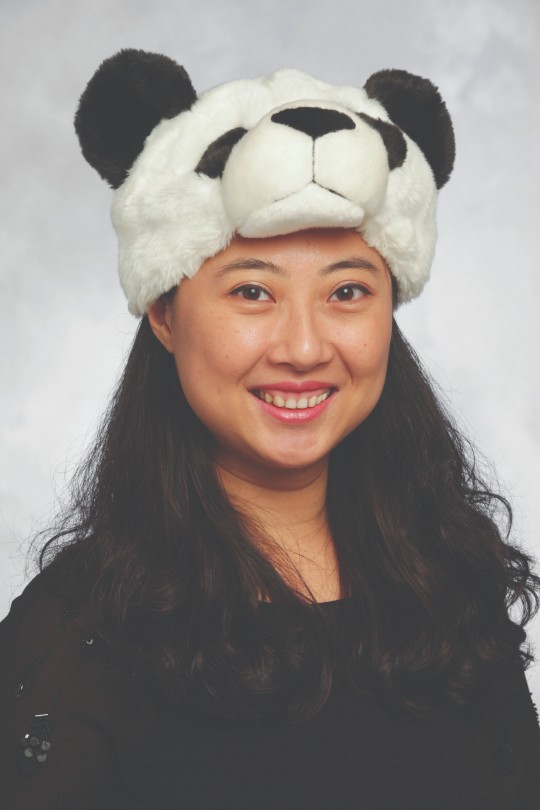In 2016, Julie Chen started her new venture from her spare bedroom to produce a range of bamboo-based products. It was as much to promote awareness of the sustainability merits of bamboo. But soon she and her husband Chris Forbes saw that it had the potential to be a disruptive global brand.
Bamboo has the capability of being a serious sustainable alternative in many product tissue and paper categories. It can grow 30 times faster than trees, absorb 35 per cent more carbon and produce 30 per cent more oxygen. And, in the correct conditions, it doesn’t need chemicals or fertilisers or pesticides. It also requires less water in the manufacturing process.
Toilet paper is Cheeky Panda’s biggest selling line but there are four products categories: household tissue, which includes toilet paper but also facial tissues and kitchen towels; baby wipes and nappies; beauty products; and a range of products for hospitality and catering. All products are FSC sustainable and Cheeky Panda was accredited as a B-Corporation in 2019.
Sales have grown exponentially – from £100,000 in 2017 into a £12m-plus business with a portfolio of more than 20 products selling into 25 markets across Europe, the US, China and the Middle East. Julie Chen is confident that revenues can rapidly grow to more than £50m. “I would like to think that Cheeky Panda is becoming a household name,” she says.
The panic buying of toilet paper at the start of the Covid pandemic provided an unpredicted boost. After knocking on the doors of supermarket chains for years, suddenly they were getting urgent calls for stock. And Cheeky Panda was able to fulfil demand. “It made us more resilient and gave us confidence that as a small business we could provide a good service level in the future,” says Chen. “It built a strong foundation for us to grow going forward.” And once the panic buying was over, demand continued to grow. Organic specialists such as Planet Organic and independent health food stores, along with Boots and Waitrose are important stockists.
So, too, is Amazon – and online is helping to power international sales: in the US, Germany and France, Amazon sales are growing strongly. In the US, sales saw a ten-times growth in sales in 2021.
In other markets, Cheeky Panda works with international distributors to sell into local markets. “The Department of International Trade has helped quite a bit, particularly in part-funding the company’s presence at international trade shows,” she says. Although the bamboo is grown in China, and most of Cheeky Panda products are made in China, Cheeky Panda is now selling into premium supermarkets in Shanghai as an international brand.
Initially Julie and Chris did everything – from business development to processing invoices. “We started to hiring young talented graduates; they were super smart and learned very fast so even as a small team we were opening doors and getting into new retail outlets. But neither Chris nor I had an FMCG background. We realised we needed experts because there was a lot of trial and error.”
And focus was a challenge; “with so many opportunities in different categories and markets, it was very easy to get distracted.” It was just one of the lessons she gained from attending the Goldman Sachs 10,000 Small Businesses UK programme. “Going on the course, and talking with others on it, made me understand that I had to look after myself first so I could then look after others in the business, and the importance of having the right resources in place so that we can scale even faster.”
Another step that has been critical to the growth of the business has been the construction of a strong leadership team – a process which was kicked off by the appointment of the company’s first non-executive director, Giles Brook. Since then, Cheeky Panda has built its board and recruited senior executives with operational and entrepreneurial backgrounds and experience at scaling up consumer brands. For example, chief operating officer David Carter has experience in transport and logistics at Body Shop, Burberry and World of Books; non-executive director Simon Duffy was a founder of the Bulldog male cosmetics brand.
Cheeky Panda has been a consistent user of the crowdfunding arena for growth finance. Since April 2017 the brand has received over £7m in investment from 4,000 investors, using the Seedrs platform. “It brings massive marketing and brand-building benefits as well as being a time-efficient way of raising finance,” says Chen. “And contrary to what some people think, crowdfunding brings in smart money. There are many intelligent investors on the platform who are happy to share ideas and make connections.” Alongside equity finance, she says, the company has been well supported by their bank with trade loans and invoice finance, “which have also helped us to scale our business.”
While most products are made in China, in 2023 it will start producing some of its wipes in the UK. “It’s been a lot of work, testing and then bringing the pulp over to the UK for conversion, but we are getting there,” says Chen.

“Crowdfunding brings massive marketing and brand-building benefits as well as being a time-efficient way of raising finance, and it brings in smart money”
Julie Chen, CEO
